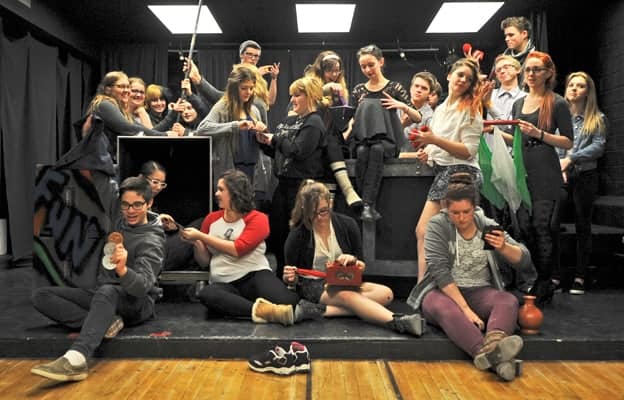Woolwich’s new crop of councillors appear ready to advocate for the public as this year’s round of budget talks get underway, challenging the need for tax increases and looking at the greatly-expanded staff roster.
There was little in the way of change applied to the draft 2015 budget, however, following the first of three special budget meetings January 8. The targeted tax increase this year is two per cent, with an additional 1.5 per cent tacked on to fund future infrastructure projects, bringing the total to 3.5 per cent. That represents another $27.02 on the bill for a home with the average township assessment of $331,500.
Noting the township had several hundred thousand dollars in unexpected revenue in 2014, Coun. Larry Shantz raised the issue of using the money to offset tax increases this year.
An increase in penalties and interest for late payment of taxes, for instance, brought in $332,000 instead of the $100,000 in the budget. Likewise, a line item for grants in lieu jumped to $252,000 from an expected $130,000.
Quickly adding up a few of the extras, Shantz noted they added up to $428,000, far more than the $135,000 that would come from the 1.5 per cent special levy for infrastructure.
“Could we not give a break to the levy this year?”
Director of finance Richard Petherick said that was an option, but warned using surpluses in place of tax increases could result in the township having to play catch-up later on as baseline tax revenues fall behind.
Petherick expects there will be a surplus for 2014, but just how big will be determined when all of the year’s expenses and revenues are finally tallied.
Responding to questions in the same vein from Coun. Patrick Merlihan, Petherick said money from assessment growth – increased revenue from development such as new homes – is often allocated to reserve funds for future growth-related issues. That figure is expected to hit $162,000 in 2015.
Much of the higher-than-expected revenue has been rolled over into the proposed new budget. Staff is requesting overall operating spending of $14,674,922, up 6.3 per cent over the $13,805,787 budgeted in 2014, well beyond the inflationary two per cent tax hike being sought.
That upward trend prompted some councillors to question current plans to expand the payroll, as well as raising the desire to trim back the number of staff members. Payroll amounts to about half of the Woolwich’s operating costs.
In that light, chief administrative officer David Brenneman’s request for $60,000 to fund a review of township services touched a nerve.
Brenneman argued the study was needed to find out what the public expects from the township in terms of service levels: the current mix, less or more.
Asked by Shantz if the review would include the need for staffing cuts as part of the process, Brenneman appeared taken aback before saying the study could show the need for more staff if the public wants more services, or fewer if that’s the case.
Picking up that thread, Merlihan said the public perception around hiring consultants is that the process is often aimed at a preordained outcome.
“Consultants will deliver you a report with the results you are looking for.”
If the survey says the public wants more services, how will they be paid for? he asked. At the expense of infrastructure spending? Simply raising taxes even higher?
“I’m not prepared to focus on additional services that are an unknown,” Merlihan said, advocating that the township first get its house in order. “I won’t be supporting this particular item on consulting.”
Fellow Ward 1 Coun. Scott Hahn also questioned the need for the review.
“Are we going to get $60,000 worth of information?”
Another item in Brenneman’s budget, economic development and tourism, was also a point of scrutiny.
Merlihan noted the township has spent hundreds of thousands of dollars over the past several years, but has little to show for the effort. The budget this year calls for expenditures of almost $150,000 while returning revenues of $6,250.
While acknowledging there are intangibles and spinoffs associated with economic development and tourism, he said there’s a need to show direct benefits to the public for the money spent.
Pointing to grants given to companies such as Elmira Pet Products, Conestoga Meat Packers and Martin’s Family Fruit Farm, Brenneman said there have been economic benefits, though he did not show a link between a staff position and those grants, nor how they differ from the situation before the staff position was added.
It’s “difficult to quantify” the benefits, he said.
Councillors put off a final decision on the items until later in the budget process, with a second special meeting held January 15 to be followed by another next Thursday night.
Next Article
Haiti still struggling five years after devastating earthquake that claimed Elmira aid worker









